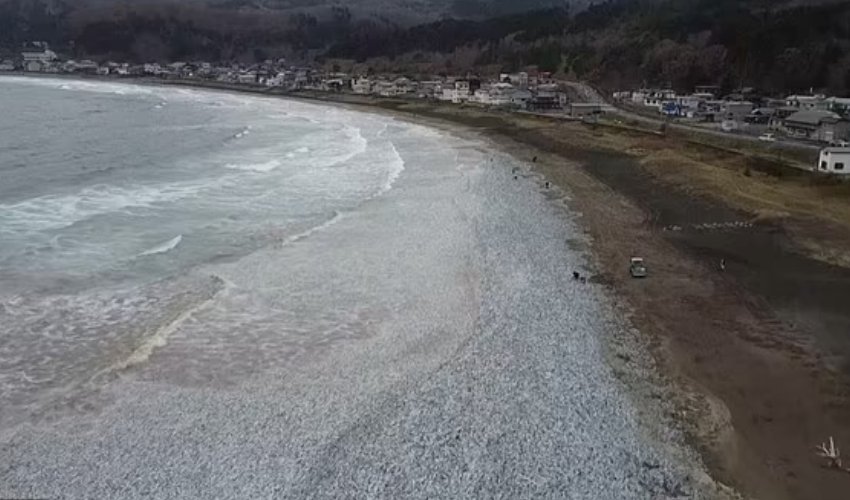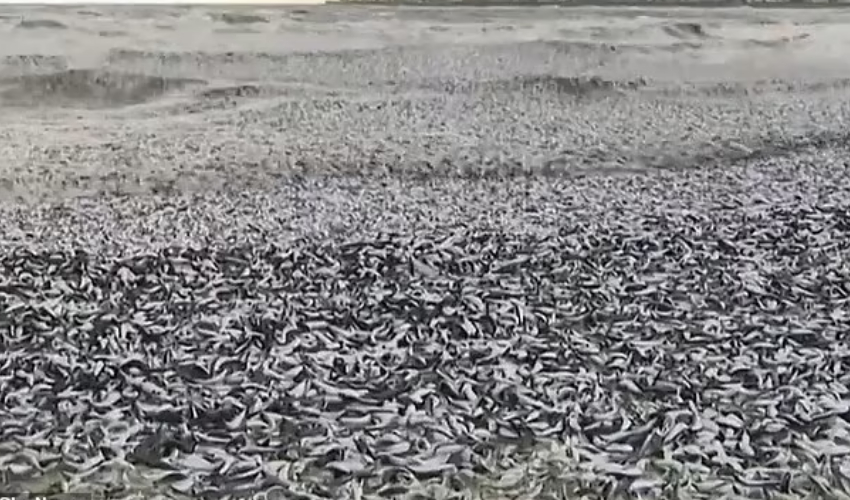A disturbing sight met the residents of Hakodate in Japan. Thousands of tons of dead fish, mainly sardines and mackerel, were washed up on a mile-long stretch of coastline.
This unexplained event has raised worries about the possible impact on local ecosystems, especially considering the recent release of treated radioactive water from the Fukushima nuclear plant.
Experts like Takashi Fujioka, a researcher at the Hakodate Fisheries Research Institute, are still unsure of the exact cause. He suggests several possibilities, including:
- Lack of oxygen due to large schools of fish moving in shallow waters.
- Sudden exposure to colder temperatures during migration, causing a fatal shock.
This isn't the first time such mass fish deaths have occurred along Japan's coast.
However, the timing, just three months after the controversial release of treated radioactive water from Fukushima, has sparked significant regional tensions.
Neighbors like China and South Korea, both vocal critics of the water release, have expressed strong disapproval.

China has even banned Japanese seafood, calling Japan's actions "extremely selfish and irresponsible."
South Korean protesters marched to the Japanese embassy in Seoul, carrying banners declaring, "The sea is not Japan's trash bin."
They voiced their opposition to the water release and its potential environmental consequences.


























